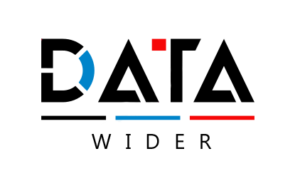mlpack is a quick, natural, just as an adaptable machine learning library, written in C++ with ties to different dialects. It is fundamentally intended to be an machine learning simple to LAPACK, and for AI analysts the library targets actualizing a wide exhibit of machine learning strategies and capacities. Notwithstanding its amazing C++ interface, mlpack likewise gives its clients order line programs just as Python binding.
Presently, Moving onto mlpack 3.0.0:
Throughout the years the task has now developed into a network drove exertion for quick machine learning usage in C++ and this discharge is the aftereffect of the perfection of the improvement that is over 10 years worth and backing of in excess of 100 benefactors from around the globe that likewise incorporates one AI giver. Among the various things, This discharge incorporates:
- A conventional advancement framework
- Python bindings
- Support for deep learning
- Executions of machine learning algorithms with greater improvement.
In 2007, mlpack was only a little undertaking at a solitary lab in Georgia Tech that lone concentrated on closest neighbor search and methods that were connected.
Presently, this year, the library is created and is being utilized all around the globe and in space also! It’s a normal piece of Google Summer of Code and is worried about the execution of all way of general and concentrated machine learning techniques.
Interfaces to Python and Other Languages:
For the arrival of mlpack 3.0, there is the making of a framework so as to give bindings to Python that have a similar interface as their command-line bindings. Furthermore, they are additionally further intending to create bindings for different languages, for example, Scala, MATLAB, C#, and Java, just as numerous others.
Likewise, When it comes to build, mlpack utilizes CMake as a form framework and consequently permits a few adaptable form setup alternatives. One for further documentation can also counsel any of various CMake tutorials
Better than ever Functionalities in mlpack 3.0.0:
Since the last arrival of mlpack, (mlpack 2.2.5), there is a ton that has been included and changed. A lot of this occurred because of activities from the Google Summer of Code. Given beneath is a short rundown of all the better than ever functionalities:
- Streamlining foundation
- Deep learning foundation that permits support for FNNs, CNNs, just as RNNs, and furthermore a great deal of existing layer types and support for custom layers.
Expansion of New streamlining agents like:
- SPALeRA, Katyusha, LineSearch, AdaGrad,ParallelSGD, FrankWolfe, SGDR, SMORMS3, SVRG and so on.
- Expansion of Fast arbitrary backwoods usage to the arrangement of classifiers that are executed by mlpack.
- Expansion of Fast arbitrary backwoods usage to the arrangement of classifiers that are executed by mlpack.
- Expansion of a hyperparameter tuning and cross-validation framework.
At long last, How Can We Forget Its Ability To Be Modular By Design?
Since mlpack has been planned in a measured manner, A person, for a particular assignment, can drop in custom usefulness. For, suppose, if an individual needs for the closest neighbor search to utilize a custom measurement or if rather needs to utilize a custom foundation for parting the choice trees, all that is required is to just simply compose the code and it connects with no runtime overhead.
Notwithstanding the abovementioned, on the grounds that mlpack has been based on Armadillo, so a client can connect any BLAS according to prerequisite and need. To make sure you know, OpenBLAS is a decent, quick, decision that accompanies parallelization that is implicit. One could likewise utilize NVBLAS, which will on the off chance that you have GPUs accessible redistribute hard core network calculations to the GPU.
For more data, experience the connections referenced below:











